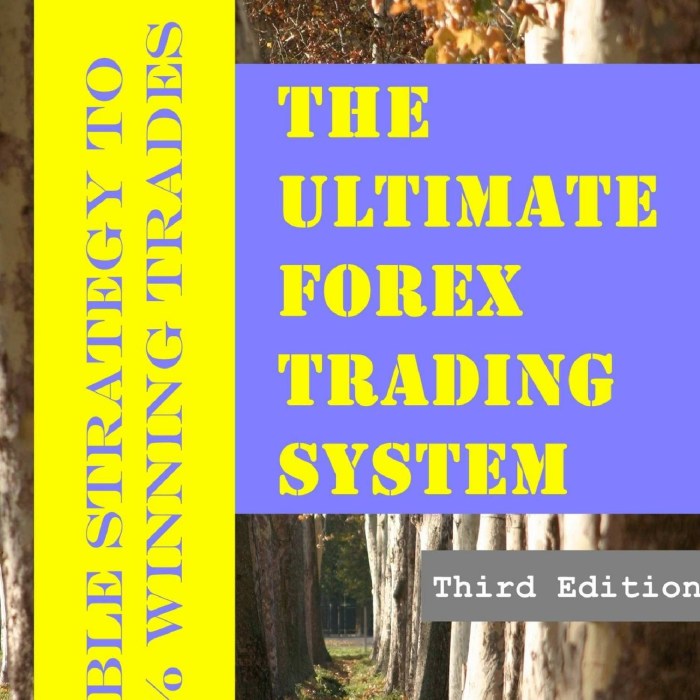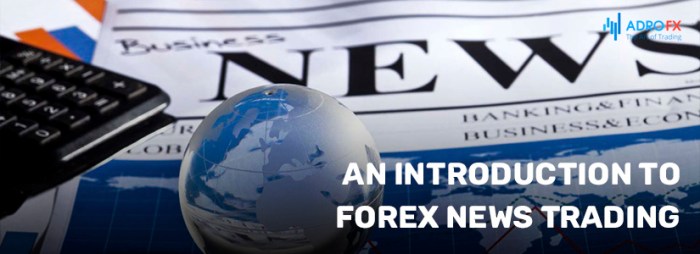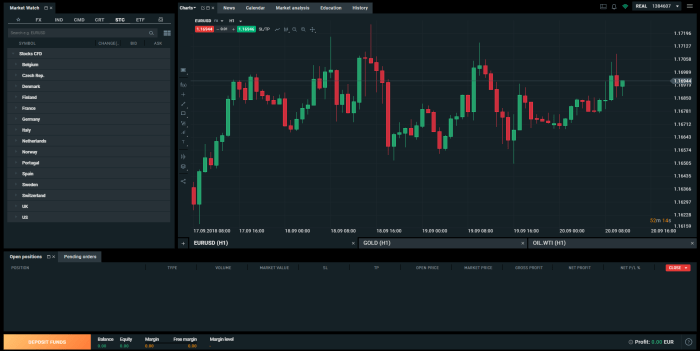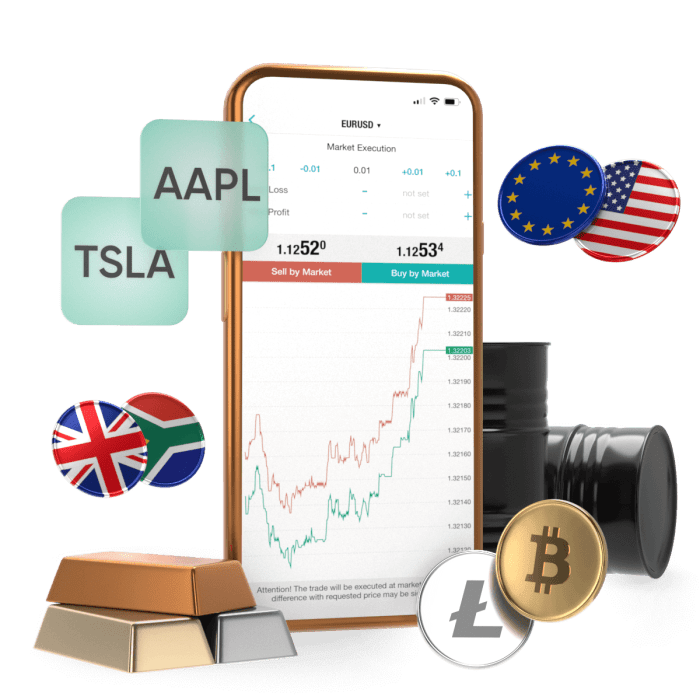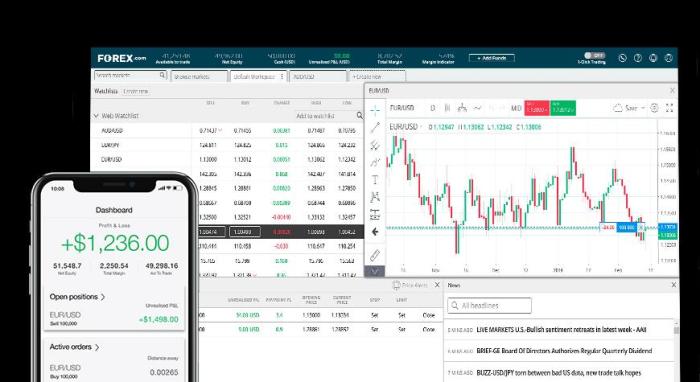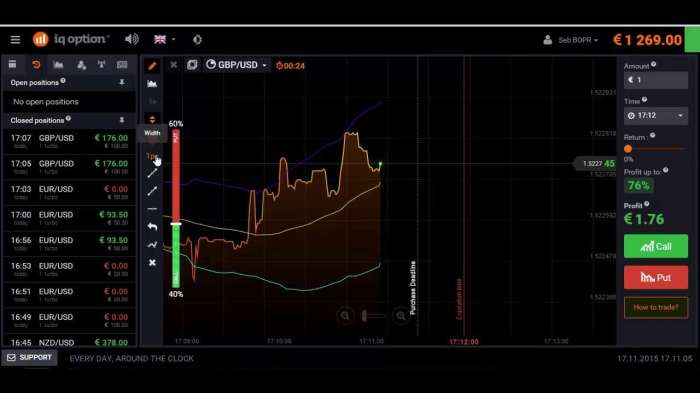
The Impact of Geopolitics on Forex Trading: Forget crystal balls; understanding global politics is your new secret weapon in the forex game. From simmering tensions to full-blown crises, international events dramatically shift currency values, creating both risk and reward for savvy traders. This isn’t just about economics; it’s about power plays, shifting alliances, and the unpredictable dance of nations – all impacting your bottom line.
This article dives deep into how geopolitical events – think elections, sanctions, trade wars, even tweets from world leaders – influence currency fluctuations. We’ll explore how to analyze these events, identify potential opportunities, and navigate the inherent risks. Get ready to level up your trading game by mastering the geopolitical landscape.
Introduction: The Impact Of Geopolitics On Forex Trading

The global economy is a complex web, and nowhere is this more evident than in the intersection of geopolitics and forex trading. These two forces are inextricably linked; shifts in global power dynamics, political instability, and international relations directly impact currency values, creating both opportunities and risks for traders. Understanding this intricate relationship is crucial for navigating the volatile world of foreign exchange.
Geopolitical factors influencing currency values are numerous and multifaceted. They range from major international events like wars and elections to more subtle shifts in diplomatic relations and economic sanctions. These factors influence investor sentiment, capital flows, and ultimately, the supply and demand for different currencies. For example, a sudden escalation of geopolitical tensions can lead to a “flight to safety,” where investors move their money into perceived safe-haven currencies like the US dollar or the Japanese yen, driving their value up. Conversely, positive geopolitical developments, such as the signing of a significant trade agreement, can boost confidence in a particular country’s economy and strengthen its currency.
Geopolitical Factors and Currency Fluctuations
Several key geopolitical factors consistently influence currency values. These include international conflicts, trade wars, political instability within a nation, changes in government leadership, and the imposition of sanctions. A significant military conflict, for instance, can disrupt global trade and lead to increased uncertainty, negatively impacting the currencies of involved nations. Similarly, the imposition of tariffs or sanctions can significantly affect a country’s economic outlook and the value of its currency. The unexpected outcome of a national election, potentially leading to policy shifts, can also create volatility in the forex market. For example, a surprise election victory for a populist leader known for protectionist policies might cause a sharp decline in the country’s currency.
Historical Examples of Geopolitical Impact on Forex
History is replete with examples demonstrating the profound impact of geopolitics on forex markets. The 1997 Asian financial crisis, triggered by a combination of factors including currency speculation and political instability, led to sharp depreciations of several Asian currencies. The 2008 global financial crisis, originating from the US subprime mortgage market, caused significant volatility across all major currencies, as investors sought safe havens and global trade slowed. More recently, the ongoing conflict in Ukraine has had a dramatic impact on the value of the Russian ruble, as well as ripple effects on global energy markets and other currencies. These events underscore the critical role geopolitical events play in shaping forex market dynamics. Analyzing past trends and understanding the interconnectedness of global events is crucial for informed forex trading decisions.
Impact of Political Instability on Currency Values
Political instability, a constant undercurrent in the global geopolitical landscape, significantly impacts currency values. Elections, coups, civil unrest, and even the mere threat of such events can trigger dramatic shifts in forex markets, creating both opportunities and risks for traders. Understanding these impacts is crucial for navigating the complexities of international currency trading.
Effects of Political Uncertainty on Currency Trading
Political uncertainty creates a climate of fear and uncertainty, driving investors towards safer havens. This “flight to safety” phenomenon typically sees capital flowing into currencies perceived as stable and reliable, such as the US dollar, Swiss franc, or Japanese yen. Conversely, currencies of countries experiencing political turmoil often depreciate as investors withdraw their funds. For example, during periods of significant political unrest in a particular country, its currency might experience a sharp devaluation against major currencies like the USD or EUR. The uncertainty surrounding the outcome of political events makes accurate forecasting difficult, increasing volatility and creating opportunities for both short-term and long-term traders. The speed and magnitude of these movements depend on the severity of the instability and the market’s perception of the long-term consequences.
Comparative Responses of Currency Pairs to Geopolitical Events
Different currency pairs react differently to similar geopolitical events. The response is influenced by various factors, including the economic strength of the countries involved, their existing political relations, and the nature of the event itself. For instance, a political crisis in a smaller, less-diversified economy might cause a more significant depreciation of its currency against the US dollar compared to a similar crisis in a larger, more robust economy. The Euro, for example, might show a more muted reaction to a political event in a smaller EU member state than it would to a major political upheaval in Germany or France. Analyzing these differential responses requires a nuanced understanding of each currency’s specific context and its relationship to the global economy.
Risk Aversion and Currency Valuations During Political Instability
Risk aversion is a key driver of currency valuations during periods of political instability. Investors, seeking to minimize losses, move away from riskier assets, including emerging market currencies, and flock to safe-haven assets. This increased demand for safe-haven currencies strengthens them, while the reduced demand for riskier currencies weakens them. The impact of risk aversion can be amplified by herd behavior, where investors follow the actions of others, leading to rapid and potentially excessive currency fluctuations. For example, during the 2014 Crimean crisis, investors moved significant capital into the US dollar and Swiss franc, driving up their value while other currencies experienced declines.
Currency Volatility During Political Turmoil
The following table illustrates the relative volatility of selected currencies during periods of political turmoil. Volatility is measured using the standard deviation of daily percentage changes. Note that these are illustrative examples and actual volatility can vary significantly depending on the specific event and market conditions.
| Currency | Average Daily Volatility (Illustrative Example %) | Example of Political Event Impacting Volatility | Typical Response to Political Instability |
|---|---|---|---|
| USD | 0.5 | Global trade wars, domestic political uncertainty | Often appreciates as a safe haven |
| EUR | 0.7 | EU debt crisis, political instability in major member states | Can depreciate depending on the specific event and its impact on the Eurozone |
| JPY | 0.6 | Geopolitical tensions in East Asia, domestic political changes | Often appreciates as a safe haven |
| GBP | 0.8 | Brexit, domestic political instability | Can experience significant volatility depending on the political climate |
The Role of International Relations in Forex Markets
International relations are inextricably linked to forex markets. Global events, agreements, and disputes directly impact currency values, creating both opportunities and risks for traders. Understanding this dynamic is crucial for navigating the complexities of the foreign exchange market. The interconnectedness of the global economy means that even seemingly isolated political events can ripple through currency markets worldwide.
International agreements and treaties significantly influence exchange rates. These agreements often involve commitments to economic cooperation, trade liberalization, or monetary policy coordination, all of which have implications for currency values. For instance, a free trade agreement between two countries might lead to an increase in demand for the currencies of both nations, strengthening their exchange rates relative to others. Conversely, trade disputes or the breakdown of existing agreements can negatively affect currency values.
International Agreements and Treaties’ Influence on Exchange Rates
The North American Free Trade Agreement (NAFTA), later replaced by the United States-Mexico-Canada Agreement (USMCA), is a prime example. The agreement facilitated increased trade between the three countries, leading to increased demand for their respective currencies (USD, CAD, and MXN). However, the renegotiation and uncertainty surrounding NAFTA’s future caused periods of volatility in these currencies as investors reacted to the potential changes in trade flows. Similarly, the formation of the European Union (EU) and the introduction of the Euro led to significant changes in the exchange rates of member countries’ currencies. The creation of a single currency fostered greater economic integration and stability within the Eurozone, influencing the Euro’s value against other major currencies.
Key International Organizations and Their Impact
Several key international organizations play a significant role in shaping global currency markets. The International Monetary Fund (IMF) provides financial assistance to countries facing economic crises and promotes international monetary cooperation. Its interventions, often involving loans or policy recommendations, can have a direct impact on the exchange rates of affected countries. The World Bank focuses on reducing poverty and fostering economic development, and its activities can influence currency markets through its impact on economic growth and investment flows. The Bank for International Settlements (BIS) acts as a central bank for central banks, facilitating international cooperation on monetary policy and financial regulation. Its actions and pronouncements can significantly influence market sentiment and currency values.
Sanctions and Trade Wars’ Effects on Currencies
Sanctions and trade wars create significant uncertainty in global markets, often leading to dramatic shifts in currency values. For example, the imposition of sanctions on Russia following its annexation of Crimea in 2014 led to a sharp devaluation of the Russian ruble. Similarly, the ongoing trade war between the United States and China has caused significant volatility in both the US dollar and the Chinese yuan, as investors react to the uncertainty surrounding trade relations. These events demonstrate how geopolitical tensions can directly translate into tangible effects on currency values, impacting businesses and individuals alike.
Timeline of Major International Events and Forex Market Effects
To illustrate the connection, consider this simplified timeline:
| Date | Event | Forex Market Impact |
|---|---|---|
| 2008 | Global Financial Crisis | Sharp decline in global currency values, increased volatility. |
| 2011 | Eurozone debt crisis | Euro weakened against other major currencies. |
| 2014 | Annexation of Crimea by Russia | Sharp devaluation of the Russian ruble. |
| 2016 | Brexit vote | Pound Sterling significantly weakened against other currencies. |
| 2018-present | US-China trade war | Increased volatility in USD and CNY. |
Economic Sanctions and Their Influence on Forex
Economic sanctions, a powerful geopolitical tool, significantly impact global currency markets. These measures, imposed by one or more countries against another, aim to exert economic and political pressure, often resulting in considerable volatility and shifts in currency values. Understanding their mechanism and ripple effects is crucial for navigating the complexities of forex trading.
Economic sanctions work by restricting economic interactions between the targeted country and the imposing entities. This disruption affects various economic factors, ultimately influencing the value of the sanctioned country’s currency.
Types of Sanctions and Their Impact on Targeted Economies
Sanctions vary in their nature and intensity, leading to diverse impacts on the targeted economies. Financial sanctions, for instance, often target specific banks or individuals, freezing assets and limiting access to international financial systems. This can severely restrict the flow of capital, leading to a depreciation of the targeted currency as foreign investment dries up and domestic businesses struggle to access funding. Trade sanctions, on the other hand, restrict the import and export of goods and services. These sanctions can cripple export-oriented economies, leading to a decrease in foreign exchange earnings and further weakening the currency. The impact is often amplified if the sanctioned country relies heavily on the restricted goods or services for its economy. For example, a country heavily reliant on oil exports facing trade sanctions on its oil will experience a significant currency devaluation as its main source of foreign exchange is severely curtailed. Embargoes, a more comprehensive form of sanctions, encompassing both financial and trade restrictions, can have a devastating effect, causing widespread economic hardship and a dramatic fall in the currency’s value.
Ripple Effects of Sanctions on Global Currency Markets, The Impact of Geopolitics on Forex Trading
The impact of sanctions rarely remains confined to the targeted country. The ripple effects can spread across global currency markets, creating uncertainty and volatility. For example, if a major economy is sanctioned, its trading partners may experience a decline in demand for their exports, leading to currency depreciation. Furthermore, the uncertainty surrounding the sanctions’ effectiveness and duration can trigger speculative trading, further impacting currency values globally. Investors may seek safer havens, such as the US dollar or the Swiss franc, leading to an appreciation of these currencies while others experience declines. The interconnected nature of the global financial system ensures that the consequences of sanctions are far-reaching and complex.
Case Study: Impact of Sanctions on the Russian Ruble (RUB/USD)
The imposition of extensive sanctions on Russia following its invasion of Ukraine in 2022 provides a stark example of the impact of sanctions on a currency. The initial response was a sharp devaluation of the ruble against the US dollar. The sanctions included freezing of central bank assets, exclusion of major Russian banks from SWIFT, and restrictions on trade in energy and other goods. While the Russian government implemented measures to stabilize the ruble, including capital controls and interest rate hikes, the currency still experienced significant volatility, reflecting the ongoing economic and geopolitical uncertainty. The case illustrates the immediate and long-term impact that comprehensive sanctions can have on a country’s currency, highlighting the complexities of predicting and mitigating the effects of such measures in the forex market. The initial sharp drop was followed by a period of relative stability, partly due to government intervention and a shift in trading patterns. However, the long-term effects continue to unfold, demonstrating the enduring influence of geopolitics on currency valuation.
Geopolitical Risk and Currency Volatility

Geopolitical risk, the ever-present shadow looming over global markets, significantly impacts currency values. It’s the uncertainty stemming from international relations, political instability, and potential conflicts that can send shockwaves through the forex world. Understanding how this risk is assessed and managed is crucial for any trader navigating the complexities of the currency market.
Geopolitical risk assessment and measurement by traders rely on a combination of qualitative and quantitative factors. Traders meticulously monitor news sources, political speeches, social media sentiment, and even satellite imagery to gauge the potential for conflict or instability. Quantitative measures might include things like the VIX (Volatility Index), which reflects market fear and uncertainty, or country-specific risk scores provided by various rating agencies. These scores often incorporate factors like political stability, economic strength, and the potential for policy changes. Sophisticated algorithms and machine learning models are also increasingly used to analyze vast datasets and predict potential shifts in geopolitical risk.
Assessing and Measuring Geopolitical Risk
Traders use a variety of tools and techniques to assess geopolitical risk. These include analyzing political risk ratings from agencies like the World Bank and Eurasia Group, monitoring news and social media for signs of escalating tensions, and using economic indicators to gauge a country’s vulnerability to external shocks. For example, a sharp decline in a country’s foreign exchange reserves might signal increasing vulnerability and heightened geopolitical risk. Furthermore, the analysis of political speeches and statements by key figures can offer valuable insights into potential policy shifts and their impact on the currency market. Sophisticated models integrate various data points to generate risk scores that inform trading decisions.
Strategies for Mitigating Geopolitical Risk
Mitigating geopolitical risk involves a range of strategies aimed at minimizing potential losses. Diversification across different currency pairs is a cornerstone of risk management. This spreads the risk, preventing significant losses if one currency is heavily impacted by a geopolitical event. Hedging, using financial instruments like options or futures contracts, can also limit exposure to unfavorable currency movements. Traders might also choose to reduce their overall exposure to riskier regions or currencies during periods of heightened geopolitical uncertainty. Thorough research and analysis, staying informed about global events and their potential impact on currency markets, are essential components of any effective mitigation strategy.
Currency Pair Volatility and Geopolitical Risk Exposure
The volatility of different currency pairs varies considerably depending on their exposure to geopolitical risks. Currency pairs involving countries with politically unstable regimes or those located in volatile regions tend to exhibit higher volatility. For instance, currency pairs involving emerging market economies often experience more significant swings due to their higher sensitivity to global events. Conversely, pairs involving major stable economies, such as the EUR/USD or USD/JPY, generally exhibit lower volatility, though they are not entirely immune to geopolitical influences. The level of volatility is directly related to the perceived risk associated with a specific country or region.
Hypothetical Scenario: Geopolitical Event and Currency Fluctuations
Imagine a hypothetical scenario where a major conflict erupts in a key oil-producing region. This event could immediately trigger a sharp increase in oil prices, leading to inflation and uncertainty in the global economy. The currency of the affected country would likely depreciate significantly as investors flee the market. This could trigger a domino effect, impacting other currencies and creating widespread volatility. For example, if the conflict involves a major oil exporter, the US dollar, often used as a safe haven during times of uncertainty, could appreciate against other currencies as investors seek stability. The resulting currency fluctuations could be dramatic, impacting businesses involved in international trade and investment portfolios worldwide. The magnitude of the impact would depend on several factors, including the scale and duration of the conflict, the country’s economic importance, and the global response to the crisis.
Central Bank Policies and Geopolitical Events
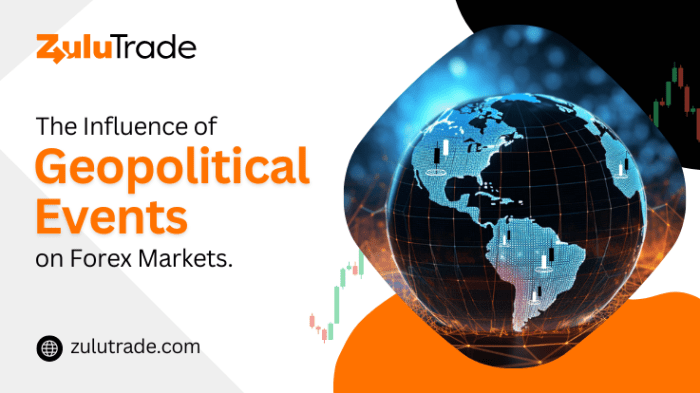
Geopolitical events, from wars and elections to trade disputes and terrorist attacks, significantly impact currency values. Central banks, as guardians of their national currencies, play a crucial role in responding to these shocks and attempting to maintain stability. Their actions, or inactions, can profoundly influence market sentiment and the overall health of the national and global economy.
Central bank responses to geopolitical events are multifaceted and depend on the severity and nature of the event, the country’s economic structure, and the central bank’s overall policy framework. The effectiveness of these interventions varies considerably, often influenced by factors beyond the central bank’s control.
Central Bank Responses to Geopolitical Shocks
Central banks employ a range of tools to manage currency fluctuations stemming from geopolitical events. These include adjusting interest rates, intervening directly in the foreign exchange market (buying or selling their own currency), implementing quantitative easing (QE) programs, and modifying reserve requirements for banks. For instance, during periods of heightened uncertainty, a central bank might raise interest rates to attract foreign investment and bolster demand for its currency. Conversely, during a deep recession triggered by a geopolitical crisis, a central bank might lower interest rates or implement QE to stimulate economic activity, even if this leads to some currency depreciation. The choice of instrument depends on the specific circumstances and the central bank’s assessment of the risks and benefits of each option.
Effectiveness of Central Bank Interventions
The effectiveness of central bank interventions in stabilizing currencies during geopolitical crises is not guaranteed. While interest rate adjustments can influence capital flows and currency values, their impact can be muted if the underlying geopolitical issues are severe and persistent. Direct intervention in the forex market can temporarily support a currency, but it can be costly and unsustainable in the long run, particularly if the central bank lacks sufficient reserves. QE programs can stimulate economic activity, but they can also lead to inflation and currency depreciation if not carefully managed. The 2014 Russian ruble crisis, for example, highlighted the limitations of central bank interventions when faced with a combination of sanctions and plummeting oil prices. Despite significant interventions, the ruble experienced a sharp devaluation.
Comparative Approaches to Managing Geopolitical Risks
Different central banks adopt varying approaches to managing geopolitical risks. Some central banks, like the Swiss National Bank (SNB), have a history of actively intervening in the forex market to maintain a specific exchange rate band. Others, such as the Federal Reserve (Fed), tend to prioritize domestic economic stability and rely more on interest rate adjustments and communication strategies. The European Central Bank (ECB) faces the added complexity of managing a currency shared by multiple countries with potentially diverging economic and political interests. These different approaches reflect differing policy priorities and institutional frameworks. The choice between active intervention and a more hands-off approach is a complex one, with no universally agreed-upon “best” strategy.
Central Bank Communication and Market Sentiment
Central bank communication plays a crucial role in shaping market sentiment and influencing currency values during periods of geopolitical uncertainty. Clear and transparent communication about the central bank’s assessment of the situation, its policy intentions, and its tolerance for currency fluctuations can help to reduce market volatility. Conversely, ambiguous or inconsistent communication can exacerbate uncertainty and lead to sharp currency swings. The Fed’s communication strategy, for instance, has become increasingly sophisticated in recent years, with regular press conferences and detailed policy statements aimed at managing market expectations and reducing volatility. The effectiveness of central bank communication depends on credibility and the perceived competence of the central bank.
Forecasting Currency Movements Based on Geopolitical Factors
Predicting how geopolitical events will shake up the forex market is a bit like trying to predict the weather a year in advance – possible, but with a hefty margin of error. While geopolitical factors significantly influence currency values, the sheer complexity of international relations makes precise forecasting incredibly challenging. Many interconnected variables constantly shift, creating a dynamic and often unpredictable landscape.
Geopolitical events rarely exist in isolation. They interact with economic indicators, market sentiment, and central bank actions, making it difficult to isolate the impact of a single event on currency movements. The unpredictable nature of human behavior, especially among political leaders, adds another layer of complexity.
Challenges and Limitations of Geopolitical Forex Forecasting
Accurately predicting currency movements based solely on geopolitical events is fraught with difficulty. The inherent uncertainty surrounding political developments, coupled with the often-delayed impact of these events on market sentiment, makes precise forecasting extremely challenging. Furthermore, the interconnectedness of global markets means that unforeseen events in one region can quickly ripple through others, creating unforeseen consequences. For example, predicting the exact impact of the 2014 Crimean crisis on the Ruble required not only an understanding of the political situation but also of the Russian economy’s resilience and the international community’s response. The initial sharp decline was followed by a period of relative stabilization, demonstrating the limitations of short-term forecasting.
Key Indicators and Data Points for Geopolitical Forex Forecasting
Several indicators and data points can provide insights into the potential impact of geopolitical factors on forex markets. These include political risk ratings from agencies like Eurasia Group or the World Bank, polling data reflecting public opinion on key political issues, news sentiment analysis gauging the overall market mood, and official statements from government officials and central banks. Analyzing the rhetoric surrounding international agreements or disputes, as well as monitoring the flow of capital into and out of specific countries, can also provide valuable information. For instance, a sudden increase in capital flight from a country experiencing political instability might indicate a looming currency devaluation.
Examples of Successful and Unsuccessful Geopolitical Forex Forecasts
The 2008 global financial crisis offered a stark example of both successful and unsuccessful forecasts. Many analysts correctly predicted that the crisis would significantly impact global currency markets, leading to increased volatility and uncertainty. However, predicting the precise movements of individual currencies proved far more challenging. While the US dollar initially strengthened as a safe-haven asset, its long-term trajectory was far less predictable. Conversely, some analysts accurately forecasted the weakening of the Euro due to the sovereign debt crisis affecting several Eurozone countries. This highlights the importance of considering multiple factors and avoiding overly simplistic predictions.
Framework for Analyzing Geopolitical Risks and Their Impact on Forex Trading Strategies
A robust framework for analyzing geopolitical risks and their impact on forex trading strategies should incorporate several key steps. First, identify potential geopolitical events that could significantly impact currency markets. Next, assess the likelihood of these events occurring and their potential severity. Then, analyze the potential impact of these events on specific currencies, considering factors such as economic fundamentals, market sentiment, and central bank responses. Finally, develop trading strategies that account for these potential risks and opportunities. This framework needs to be adaptable and regularly updated, reflecting the ever-changing geopolitical landscape. For example, a trader might use this framework to evaluate the risks associated with escalating tensions between two major economies, potentially leading to trade wars and impacting their respective currencies. The framework would help determine the potential for currency devaluation and inform the trader’s investment strategy accordingly.
Wrap-Up
So, the forex market isn’t just about economic indicators; it’s a reflection of the world stage. By understanding the intricate interplay between geopolitics and currency values, you can sharpen your trading strategies and potentially navigate market volatility with greater confidence. Remember, staying informed, analyzing risks, and adapting your approach are key to success in this dynamic arena. The world is a volatile place, but with the right knowledge, you can turn global uncertainty into profitable opportunities.
Top FAQs
How can I stay updated on geopolitical events that affect forex?
Follow reputable news sources covering global politics and economics. Consider subscribing to financial news alerts and utilizing geopolitical risk assessment tools.
What are some common indicators of increased geopolitical risk?
Increased military activity, escalating diplomatic tensions, unexpected policy changes, and significant shifts in international relations are all red flags.
Are there specific currency pairs more susceptible to geopolitical events?
Yes, currencies of countries with politically unstable regions or those heavily reliant on international trade are often more volatile in response to geopolitical events.
How can I incorporate geopolitical analysis into my trading strategy?
Integrate geopolitical news into your technical and fundamental analysis. Consider using risk management strategies like hedging or diversification to mitigate potential losses.
Notice How to Start Forex Trading: A Step-by-Step Guide for recommendations and other broad suggestions.
Obtain access to Top Forex Brokers to Use in 2025 to private resources that are additional.
